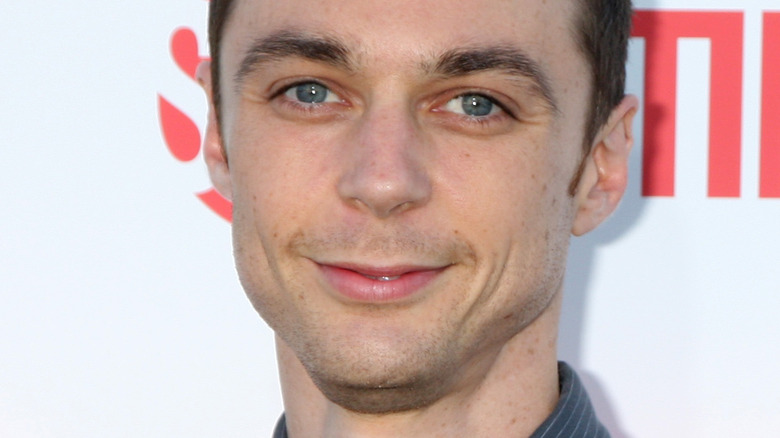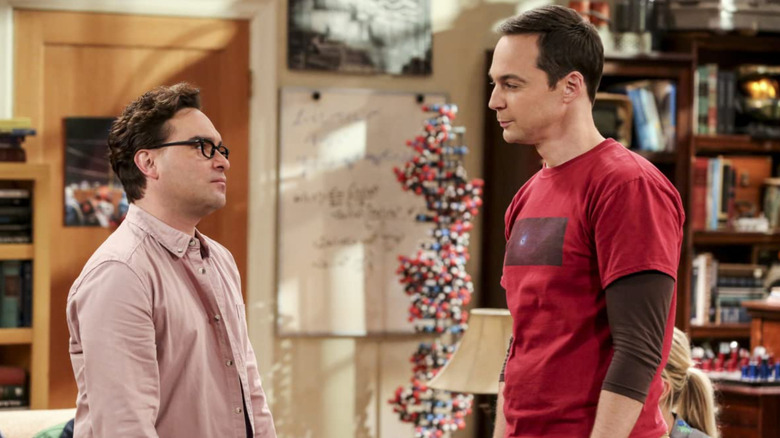Why Sheldon's Intelligence Was A Double Edged Sword In The Big Bang Theory
"The Big Bang Theory" quickly became one of television's most popular and longest-running comedies after twelve hilarious seasons. With a variety of memorable characters and an abundance of pop-culture references, the series has a little something for everyone. This distinct element helps bring in a diverse array of enthusiastic fans who either love or are aggravated by the zany intellect of Dr. Sheldon Cooper (Jim Parsons).
Parson's role as Sheldon earned him four Emmys (via IMDb) for his portrayal of the wacky and stubborn physicist who becomes an icon of the show. His ability to recite quick-witted dialogue and impressively articulate scientific facts consistently made him a series standout. Sheldon's popularity even paved the way for the successful spin-off "Young Sheldon," which often makes loving callbacks to the original series.
Though Sheldon is extremely intelligent, he also exhibits other behaviors that viewers sometimes find funny but can be perceived as troubling. He has difficulty empathizing with others and understanding their emotions, and he can come off as a bit inconsiderate. Sheldon even condescends to all of his closest friends for not being as smart as him, like his wife Amy (Mayim Bialik), best friend/former roommate Leonard (Johnny Galecki), emotional confidant Penny (Kaley Cuoco), and friend Howard (Simon Helberg).
Sheldon's impressive intellect also gifts him a superiority complex
Over the course of "The Big Bang Theory's" run, it's hard to find someone Sheldon doesn't directly insult to their face because they aren't as smart as him. He constantly talks down to his roommate Leonard until he meets Amy, who finally reins him in. She teaches him compassion, awareness, and empathy for others, which helps combat Sheldon's rude nature.
As Screen Rant points out, Sheldon's intelligence is critical to his success. His smarts helped get him into college at an early age and even led him to win the Nobel Prize for Physics in "The Big Bang Theory" series finale. However, Sheldon's penchant for talking down to others was even present in his earlier years, which we see in "Young Sheldon." This leads him to conflict with his peers, especially when he tries to assert dominance over others because of his big brain. That is the embodiment of Sheldon's Achilles' heel, which ultimately leads him to both greatness and apathy.
Sheldon's superiority complex may also be a shield of sorts to protect him from judgment from others. We see in the spin-off that he struggles with making friends, which is why his close circle of loved ones is so precious in his adult life. Sheldon could be projecting his insecurities of being rejected onto others, especially the sole engineer Howard who Sheldon repeatedly targets. He mocks his education, but he's probably also secretly jealous of Howard's space adventures as an astronaut.

